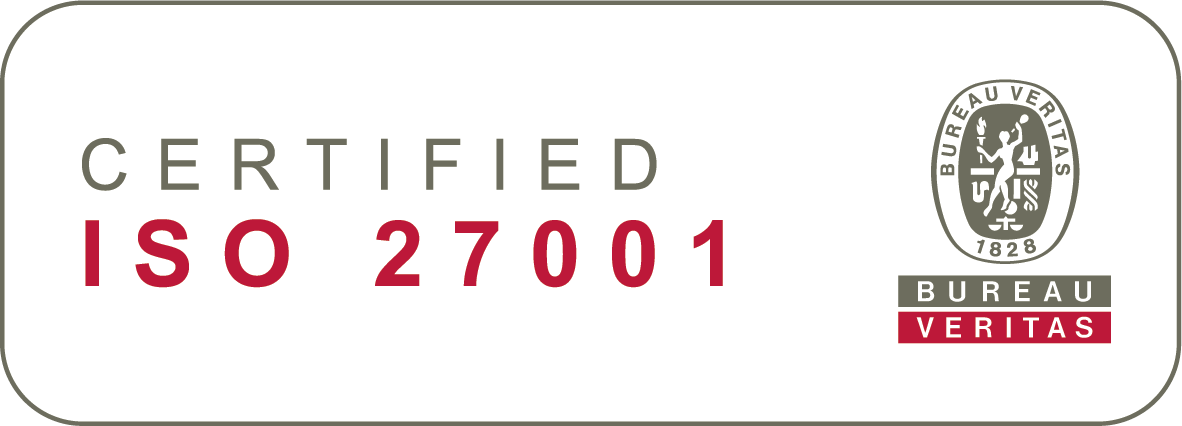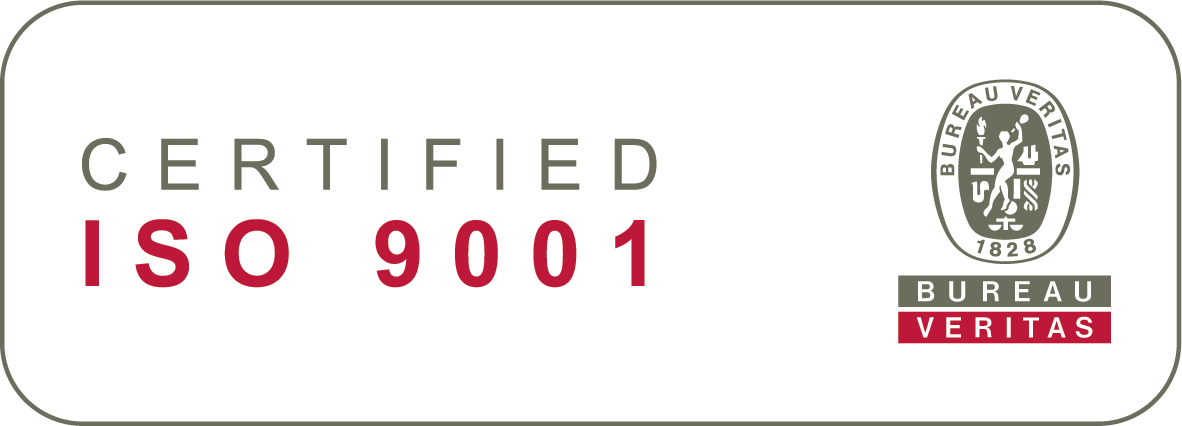We live in an era of constant innovation and change, and this is no different for HR. Yet trying to keep up with HR innovations and future trends while managing your day-to-day work can be exhausting. Sounds familiar? Don’t worry! We’ve summarised the latest knowledge on Human Resources trends in this guide to make the future of HR easier for you to navigate.
We’ve designed this guide so that you can easily pick and choose the topics that are relevant to you when preparing your HR strategy. When you learn more about industry trends, you’ll have a better grasp of where you and your organisation currently stand. You will then be able to recognise which trends you should research further more easily. We’ll help by introducing the current industry pioneers within each trend and provide tips about how you can follow their lead. So, without further ado, let’s dive in.
HR to step up and become a trusted business advisor
Before the COVID-19 madness, we were already observing the rise of HR within most organisations’ hierarchies. The past two years have radically accelerated the trend, and HR is now the cornerstone of more organisations. The equation is relatively simple – no functioning HR = no functioning people = no organisation. With this in mind, HR has significantly more influence and organisational power than ten years ago – which means bigger responsibilities. Many companies now realise how central and essential HR and a good human resource management system is during difficult times.
Without an HR system to rely on, even basic HR questions can become overwhelming. Questions such as how many people do we employ, and what kind of employment contracts do they have, or what skills does our competence pool consist of? Do we have the necessary resources to support an increase in demand? How easily can we recruit more fixed-term staff? What if the demand decreases? What are our capabilities in potential employee cooperation negotiations or layoffs? How do we ensure that we’re prepared for a rapid rebuilding after the crisis?
An ability to answer these basic questions is a prerequisite for ensuring continuity in any business during growth or recession. To truly add value that supports your organisation’s ability to scale and therefore be a trusted business advisor, HR needs data- driven answers to provide for the rest of the organisation. The HR department will eventually be part of a bigger entity or broken down into separate functions that span across the entire organisation, depending on the need. By moving closer to the decision-making process today, HR will become more integral to the business strategy in the future.
The role of HR in a changing world
The rapid shift to remote and hybrid work driven by the pandemic put a lot of HR professionals under colossal pressure. Despite the massive changes that organisations have had to adopt, perhaps the silver lining is rising to the challenge of building a new role for HR in the Future of Work.
But the work landscape continues to shift amid economic, healthcare, and political challenges, among others. As such, HR departments everywhere are focusing on functions that directly support businesses and finding new ways to operate. All companies are against the same challenge: decisions need to be made, and they need to be made fast. Therefore, companies need to focus on being more agile in terms of scalability.
HR can easily support these crucial decisions by truly owning its people data and knowing how to use it. By building a relevant HR master data set, following the right reporting processes and keeping essential HR KPIs easily at hand, HR can support decision-making by providing the right numbers and proactively seeking new opportunities.
HR leaders need to avoid causing unnecessary damage that will harm the organisation’s ability to grow in the future. If, for instance, the focus is on permanently reducing employee numbers, then this indicates no intention of scaling back up again in the future. This can be both short-sighted and can give the wrong message to employees. Instead, the focus should be on keeping people that will help the business grow long-term.
HR analytics
HR analytics is actually neither an unknown concept nor a new HR trend – most people know what it means – but that doesn’t mean they’re putting analytics to good use. In fact, very few HR departments are getting the most out of their data or are fully utilising analytics tools. Often, this misuse of data can be chalked up to hard-to-use tools or simply getting lost in a sea of data.
People data is important. Understanding it means understanding your people: why they succeed, where they struggle, and what they need to be more effective at work. Most teams now heavily rely on data to make more informed decisions and positively affect their organisations using external data. Until HR professionals start truly using their data and closing the gap between theory and practice, HR analytics is going to keep popping up on trend lists.
Maturity test: Back to basics
How long does it take for you to gather the following data and answer these few example questions about your organisation? If you are done within a few minutes, great! If not, it might be time to start thinking about how and where to gather HR data in one place to make any analytics project smoother or possible in the first place.
Basic
(these questions should take you less than 30 seconds to answer)
- How many people work within your organisation?
- What are the average age, gender or salary distributions?
Advanced
- How long have your employees, on average, been working for your company?
- Are specific segments at risk of leaving the organisation? If yes, why?
- When is the annual peak of sick leaves, and what factors correlate with the increased amount of sick leaves?
Master data – how HR becomes a strategic business partner
In changing times, one thing will always stay constant: the need to collect and use your data to support your efforts. To do this effectively, acting rather than just talking is crucial. Before
introducing ground-breaking technologies or workflows, you need to make sure that you’ve laid a solid foundation.
If your master data is not in order – and by this, we mean accurate, under control and accessible – it will be impossible to implement the complexities of new technologies or processes successfully. So rather than jumping blindly into anything, you should first get fully up to date with what’s happening with your own organisation and its employees. Once you’re there, a brave new world of possibilities will open up.
HR data visualisation
How the information is displayed to the users also matters. Much like a car’s dashboard, a dashboard built into the information systems summarises the information that is relevant to the user from different sources and displays it in a format that is easy to interpret. The dashboard lets the user quickly see the metrics and tasks requiring attention.
A perfect dashboard is customisable for each user and allows users to follow their key interests and complete their tasks efficiently. The supervisor view could include metrics presenting the status and performance of the supervisor’s team, as well as tasks requiring immediate attention (e.g. holiday requests, sick leave notices and annual performance reviews). The view could also allow supervisors to view their team’s information in more detail or compare it with other teams’ information. On the other hand, an HR manager should be able to view the essential information concerning the entire personnel and HR practice and drill down to the information of individual units or operations.
The dashboard should display things that users want to perform, monitor, and manage actively, whether they are related to sales, atmosphere, workplace safety or any other factors contributing to the organisation’s success.
What next?
HR analytics is an exciting field with a lot to offer. First, make sure to find out which questions you should be asking. The best questions are those which lead to actionable insights. Then, figure out which metrics will help you answer those questions. By taking these simple steps, you are already on your way towards contributing to a more data-driven organisation.
Using people analytics means you no longer have to rely on gut feeling. Instead, analytics enables HR professionals to make data-driven decisions. Furthermore, analytics helps to test the effectiveness of HR policies and different interventions.
Moving forward, we will see organisations increasingly rely on HR to make more informed decisions – from the inside out – to outcompete their rivals.
Focus on employee experience and wellbeing
Simon Sinek said, “Customers will never love a company until the employees love it first.” Building this kind of organisation requires developing a strong company culture. Focusing on the employee experience and company culture will help people feel engaged and improve the feeling of relatedness to their work. It will also help to attract and retain top talent, which drives an organisation’s bottom line. Following trends like the great resignation, quiet quitting, and war for talent, the pressure of having a good company culture will only increase in the future.
Developing a strong company culture that focuses on the employee experience requires a multi-faceted approach. It should start at the beginning from the onboarding process and continue all the way through to the exit discussions, providing opportunities for giving feedback and developing new skills along the way.
For more detailed advice on the importance of a nurturing workplace, as well as concrete tips on how to strengthen your company culture through onboarding, feedback, and exit discussions, read our blog dedicated to the employee experience and wellbeing.
Future of work
Hybrid
For reasons that are now obvious to everyone, remote work became the new normal during the pandemic, and we now know that it’s here to stay. Being able to work from home can give employees an improved work-life balance. For companies, flexible work arrangements can significantly boost productivity and employee satisfaction. Employee sentiment towards hybrid and remote options has clearly shifted for the long term. This means adjusting or rethinking HR processes, internal communication processes and remote leadership processes.
Making that happen means managers need to consider four distinct perspectives: (1) jobs and tasks, (2) projects and workflows, (3) employee preferences, and (4) inclusion and fairness. Start by identifying key jobs and tasks, determine what the drivers of productivity and performance are for each, and think about the arrangements that would serve them best.
Aim to offer all employees equal capability to do their jobs regardless of office, online, or hybrid working styles. The true meaning of hybrid work is offering the choice between the office, home, and travel depending on your employee’s circumstances that day or week. It’s about facilitating tools, processes and actions that create equal opportunities no matter where people work. For example, offer flexi desks in the office for people that want to come to the office on an irregular schedule, provide all employees with the same office equipment for remote work, and make everyone join meetings at the office with their laptop instead of a shared camera and microphone.
Train leaders in the management of hybrid teams and invest in the tools of communication and coordination that make it easy and efficient to connect with one another and share crucial information.
New work calls for new leadership
Modern management and HR trends are shifting towards a more people-centred approach, which allows people from all generations and walks of life to thrive. These new leadership concepts promote self-management, empowerment, teamwork, agile processes and emotional intelligence. In fact, the list of new management and leadership concepts is endless.
Here are a few well-known examples of these principles related to the new ways of working and structuring organisations.
Holacracy
Holacracy is a new, decentralised challenger to traditional working methods. In a holacracy, power doesn’t operate top-down but is equally distributed throughout the organisation. This gives employees the freedom to self-manage without straying from the organisation’s purpose. A structured set of rules grants this freedom and eliminates problems like uneven power dynamics and duty- related guesswork.
Teal organisation
Based on the work of Professor Clare W. Graves, a Teal organisation is the proposed next level in a series of colour-coded developmental levels throughout human history. Graves believed that humanity was ready for a momentous leap forward – which, according to followers, is a leap into Teal. Teal organisations revolve around three specific values: self- management, wholeness and evolutionary purpose. In practice, this means hierarchies are removed and people are empowered to be their true selves, while working together towards a goal without competition.
Participative leadership
Opposite to traditional top-down hierarchies, participative leadership is a management practice where everyone is involved in making and shaping decisions that impact them. The reason is that people have a difficult time understanding and appreciating decisions that are made in isolation. Organisations that consult diverse groups make better decisions.
So with participative leadership, everyone is given a role in creating impact at the company and people understand their part in the big picture. This brings a feeling of purpose and meaningfulness to work. Studies show that when people feel empowered, included, and valued in an organisation, motivation and engagement levels soar and they achieve great work.
HR can help by training skilled facilitators to guide the group through the process and handle different personalities and preferred ways of working. Pay attention to how you design the process, where and how you create the shared space for context, and ensure that everyone feels comfortable sharing feedback. However, without clear structures that give everyone a chance to participate meaningfully, the quality of your discussions will be next- to-useless. Utilising technology and HR software is a critical factor in creating these structures and processes.In the long run, collaborative leadership will boost employee engagement, loyalty, and satisfaction by ensuring everyone has a part to play.
Successful employee retention
Every company, including ours, has to say goodbye to employees from time to time. But an effective retention strategy helps keep the number of leavers to a minimum. For us, a strong workplace culture, clear processes, and a continuous focus on employee happiness have been key factors in keeping our churn rate low, especially during a significant growth phase.
Keep your workforce motivated
Completely avoiding employee turnover isn’t an option. Employee turnover is incredibly costly because staff cost is the largest expense of an organisation. The average cost per hire is approximately €4,494. It’s expensive to recruit new candidates because it requires both time and money, especially in the current candidate market.
An effective retention strategy, however, will help decrease the number of leavers and increase the productivity of your business. It covers ways to maintain a strong culture in a hybrid world, clarifies your processes, and prioritises employee wellbeing.
Employee turnover predictions and other statistical models have also proven effective. Always be on top of your employee turnover numbers to be able to diagnose what are the drivers that make people leave and to plan actions to increase retention rates.
Retaining workers – by listening to their needs, accommodating their different work styles, and addressing inequities – should be at the top of the work/life agenda for People departments.
Whistleblowing (EU directive 2023)
The EU Whistleblowing Directive aims to protect people who disclose work-related misconduct across the EU. This calls for organisations to review their whistleblowing solution to meet the requirements of the directive. It’s mandatory for any employer with over 50 employees to provide internal channels for reporting any misconduct. Additionally, the employer needs to provide accessible information about whistleblowing to its employees and how to report it. This process should be confidential, secure, and without any risks of consequences.
Someone or several people need to be appointed the designated owners of the whistleblowing channel – this is mandatory by law under the directive. As the guardians of employee wellbeing, HR leaders must be vigilant of legislation that directly impacts personnel and company success.
Building an easy-to-use, effective whistleblowing system that aligns with the directive helps companies:
-
Nurture a culture in which employees feel safe speaking up
-
Establish brand integrity
-
Encourage just business practices while avoiding misconduct
How can HR facilitate the implementation of the EU whistleblowing directive?
- Create channels for communication
Employers are required to provide workers with several methods of disclosing private information while preserving their anonymity. There should be a variety of reporting mechanisms accessible, including in-person, the internal company hotline, and over the intranet. The reporting channels should be simple to use to encourage employees to report misconduct internally rather than resorting to making it known to the public. - Encourage respect and trust in the workplace
An organisational culture that promotes psychological safety enables employees to speak up when businesses breach lawful conduct. Businesses can foster a culture that values honesty, respect, fairness, and equality to significantly lower the likelihood of whistleblowing. - Educate managers and leadership
The company’s leadership needs to be on board with the whistleblower protection initiative – this ensures that the company upholds its responsibilities and does not retaliate against employees who have disclosed information. In a whistleblowing scenario, HR also needs to collaborate with Legal, Risk, or Compliance as an equal partner. When employees report people-related misconduct, HR owns and manages these cases. For other cases like fraud and theft, HR supports their colleagues as they investigate these cases.
Three resources we recommend to build the future of work
ARTICLE | Strategies for building effective virtual teams (Business Horizons)
“Many of us have undergone major changes when we started collaborating digitally and began working from home full-time. This research shows several strategies for managing remote teams. In the words of the authors (in reference to a Microsoft statistics report about remote working): virtual teams are here to stay. It really is a topic that is now more relevant than ever.”
– Product Marketing Manager
ARTICLE | How to combat Zoom fatigue (Harvard Business Review)
Diversity & inclusion
Today’s workforce comprises four different generations of employees, each with different skills, expectations, and challenges. 89% of employees consider generation diversity in the workplace as a positive element of work, and 87% viewed the opportunity to learn from each other as a good thing for their experience.
Because diverse generations are working together, organisational culture and communication cannot be universally applied. Introducing tools that can satisfy the needs of every generation can be difficult, and people shouldn't be compelled to work in the same setting or context.
So how can organisations wield the power of these generations to enhance their business yet ensure that everyone is kept happy, decisions are equitable, and all voices are made equal? Read our blog on diversity and inclusion in the workplace to find out.
Conclusion
It’s impossible to know what tomorrow will be made of. And, truth be told, what would be the fun in that? However, what organisations can do is prepare for the future and ensure that they are ready to function and support their people in the face of change.
One way to cope is to shift focus to the present, gain an accurate understanding of what’s happening now and how current events affect your organisation and its people. The more HR knows about your organisation’s people, the more it can do to keep them happy, motivated, productive, and at work.
With the necessary processes and technology to back you up, these signals can be read in near real-time, data can help make better predictions of the future, and leaders can quickly make adjustments to minimise impact – and take advantage of new opportunities.








